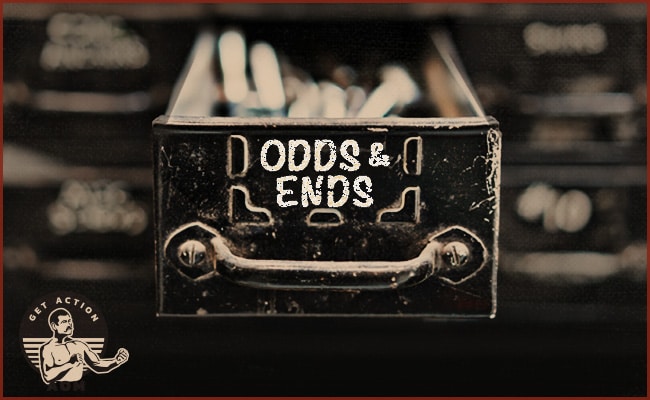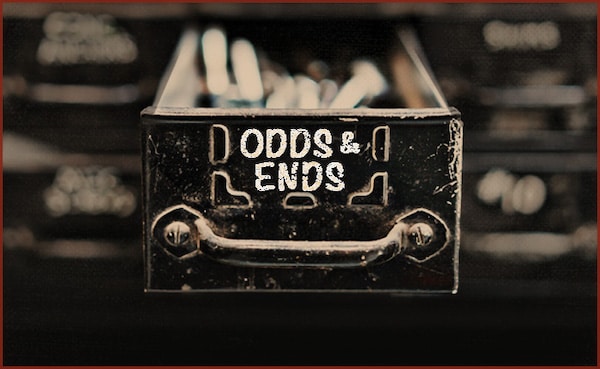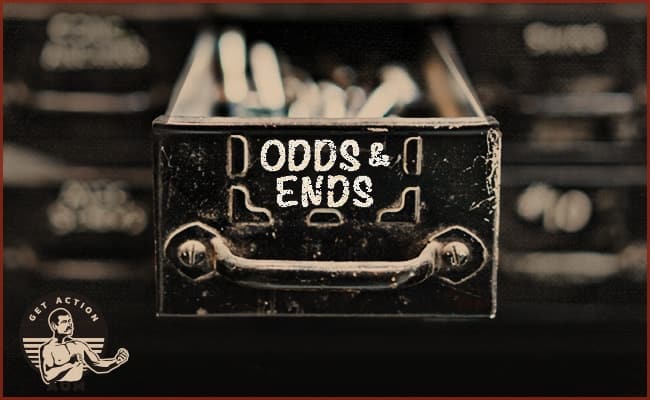
Christmas in Connecticut. Before there were Instagram influencers faking picture-perfect domestic lives, there was Barbara Stanwyck’s Elizabeth Lane – a magazine columnist crafting pure fiction about her idyllic farm life and cooking expertise. When she’s forced to host a war hero for Christmas dinner at her nonexistent Connecticut farm, the charade threatens to unravel in delightfully comedic fashion. While It’s a Wonderful Life and Miracle on 34th Street get the lion’s share of classic holiday movie attention, this 1945 gem deserves a spot in your December viewing rotation. It’s both charming and screwball-y funny. If you need more recommendations on holiday films to watch, be sure to listen to our podcast episode on the topic.
Brite Star Tinsel Icicles. If you watch old movies, like Christmas in Connecticut, you’ll notice that the branches of the Christmas trees in the film are often draped with tinsel. Christmas tinsel, which was particularly popular in the 1950s, originated in 17th-century Germany, where wealthy families put pieces of shredded silver on their trees to reflect the candlelight and create an icicle-esque effect. Tinsel would later be made from aluminum and now typically comes in the form of metallic-looking plastic. Kate grew up putting tinsel on her family’s Christmas tree, and we’ve continued the tradition in our household. It adds some pretty pizzazz and vintage vibes to the ol’ tannenbaum. We use the Brite Star brand — tinsel that’s surprisingly and hearteningly still made in America.
A Web of Our Own Making by Anton Barba-Kay. While many books about technology focus on algorithms or business models, this one takes a more philosophical approach to understanding how the internet has changed us and our culture. Drawing on thinkers from Aristotle to Heidegger, Barba-Kay examines how our relationship with screens has altered our experience of time, space, and human connection. It’s a dense book, and some parts were tough to get through, but I thought Barba-Kay’s insights about how we’ve become both the creators and casualties of our digital environment were incisive. Lots to chew on.
How ‘Dry January’ Is the Secret to Better Sleep, Saving Money, and Losing Weight. “Dry January” originated in 2013 as a public health campaign by the British charity Alcohol Change UK; the concept is simple: after what is a typically a period of indulgence during the holidays, people are encouraged to abstain from alcohol for the month of January to promote healthier habits. Thousands of people have tried the challenge, but does it actually have benefits? According to a study done several years ago, it definitely does. The majority of people who participated in Dry January experienced improvements in their sleep, weight, focus, and skin and also thought more deeply about their relationship with alcohol. And it reduced participants’ alcohol consumption over the long term; those who did resume drinking after January was over were still drinking less than they had previously been six months later. The lead researcher points out that staying perfect with the challenge isn’t necessary to reap this benefit: “Interestingly, these changes in alcohol consumption have also been seen in the participants who didn’t manage to stay alcohol-free for the whole month — although they are a bit smaller. This shows that there are real benefits to just trying to complete Dry January.” So if you’ve been looking to reassess your relationship with alcohol, perhaps this is a challenge you’ll want to attempt in the new year.
Quote of the Week
There is so little to redeem the dry mass of follies and errors that make up so much of life, that anything to love or reverence becomes, as it were, a sabbath to the soul.
—Edward Bulwer-Lytton




